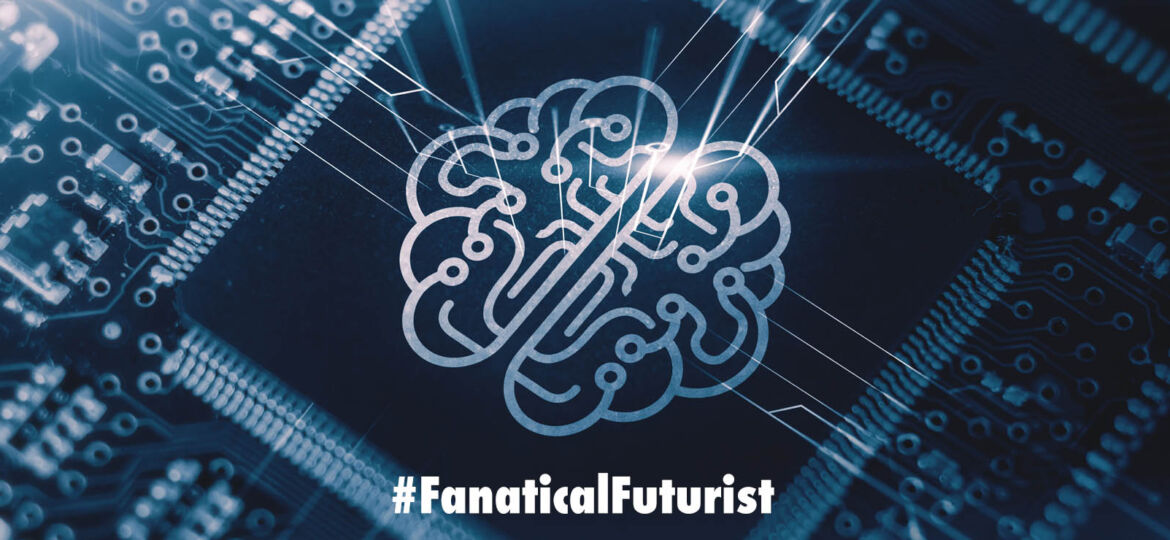
WHY THIS MATTERS IN BRIEF
Copilot is a Microsoft tool that uses advanced AI from OpenAI to help workers automate everything from writing to coding, and improve their productivity.
 Love the Exponential Future? Join our XPotential Community, future proof yourself with courses from XPotential University, read about exponential tech and trends, connect, watch a keynote, or browse my blog.
Love the Exponential Future? Join our XPotential Community, future proof yourself with courses from XPotential University, read about exponential tech and trends, connect, watch a keynote, or browse my blog.
After the run away success of OpenAI’s ChatGPT Microsoft has announced a new Artificial Intelligence (AI) powered “Copilot” for its Microsoft 365 apps and services, designed to assist people with generating documents, emails, presentations, and much more.
The Copilot, powered by GPT-4 from OpenAI, will sit alongside Microsoft 365 apps much like an assistant – remember Clippy!? – appearing in the sidebar as a chatbot that allows Office users to summon it to generate text in documents, create PowerPoint presentations based on Word documents, or even help use features like PivotTables in Excel.
Introducing Copilot
“It works alongside you, embedded in the apps millions of people use every day: Word, Excel, PowerPoint, Outlook, Teams, and more,” said Microsoft 365 head Jared Spataro. “Copilot is a whole new way of working.”
Microsoft 365 users will be able to summon Copilot to provide information on an upcoming Microsoft Teams meeting, preparing people with updates on related projects, organizational changes like recent hires, and even updates on co-workers who might have returned from vacation.
Copilot can also be summoned throughout Microsoft’s Office apps and be used in Word to draft documents based on other files. The AI generated text can then be freely edited and adapted. As Copilot is essentially a chatbot, you can even ask it to create a 10 slide PowerPoint presentation based on a Word document or analyze or format Excel data.
That means Excel users can use Copilot to instantly create a SWOT analysis or a PivotTable based on data. In Microsoft Teams, the Copilot feature can transcribe meetings, remind you of things you might have missed if you joined late, or even summarize action items throughout a meeting.
Spataro was quick to note that Copilot won’t always be correct, though. “Sometimes Copilot will get it right, other times it will be usefully wrong, giving you an idea that’s not perfect but still gives you a head start,” said Spataro during Microsoft’s AI event today.
Copilot will also exist in Outlook, so you can spend less time deleting emails and responding. Email threads can be summarized, and Copilot can even create draft responses with toggles to adapt the tone or length of an email.
“To build Copilot we didn’t just connect ChatGPT to Microsoft 365,” says Spataro. “Microsoft 365 Copilot is powered by what we call the Copilot system.” This system combines Microsoft 365 apps like Word, Excel, and PowerPoint with the Microsoft Graph of data and intelligence and GPT-4.
Copilot uses grounding to improve the quality of the prompts its given. If you ask Word to create a document based on your data, Copilot will send that prompt to the Microsoft Graph to retrieve the context and data before modifying the prompt and sending it to the GPT-4 large language model. The response then gets sent to the Microsoft Graph for additional grounding, security and compliance checks, before sending the response and commands back to Microsoft 365 apps.
Microsoft is also planning to launch a Business Chat feature that works across all Microsoft 365 data and apps. It uses the Microsoft Graph to bring together documents, presentations, emails, notes, and contacts into a single chat interface in Microsoft Teams that can generate summaries, planning overviews, and more.
Microsoft CEO Satya Nadella unveiled this new AI Copilot during a special AI productivity event this morning. After bringing an AI-powered chatbot to Bing recently, Microsoft is moving quickly toward the integration of OpenAI’s large language models into its Microsoft 365 suite. Microsoft’s announcement comes just days after Google announced similar AI features for Google Workspace, including AI-assisted text generation in Gmail, Docs, and more.
Microsoft says it’s testing its Microsoft 365 Copilot with 20 customers right now and will be expanding the preview in the coming months.
“We will share more about pricing and details in the coming months,” says Microsoft in a blog post.
While Microsoft is certainly moving quickly with its AI-powered vision for Office apps, there will certainly be concerns around this speed of innovation and the accuracy of its AI models, particularly when Microsoft 365 users may well be using them with business data in the months ahead.
“We make it clear how the system makes decisions by noting limitations, linking to sources, and prompting users to review, fact-check and adjust content based on subject-matter expertise,” says Spataro in a blog post, noting the company’s AI principles.
Microsoft recently laid off its ethics and society team within the AI organization. The team had been working to identify risks posed by Microsoft’s adoption of OpenAI’s language models throughout its software and services.
That’s left some inside and outside Microsoft concerned at the pace of AI powered software, but Spataro doesn’t share the same concerns.
“To serve the unmet needs of our customers, we must move quickly and responsibly, learning as we go,” says Spataro. “ We’re testing Copilot with a small group of customers to get feedback and improve our models as we scale, and we will expand to more soon.”
Microsoft is clearly starting small to ensure any costly mistakes are discovered early on.
“When the system gets things wrong, or has biases, or is misused, we have mitigations in place,” says Jamie Teevan, Microsoft’s chief scientist. “We’re tackling the long term implications and novel risks like jailbreaks. We’re going to make mistakes, but when we do we’ll address them quickly.”
















